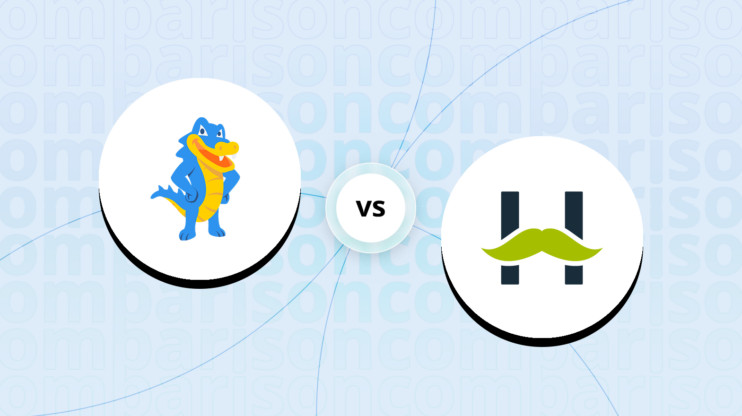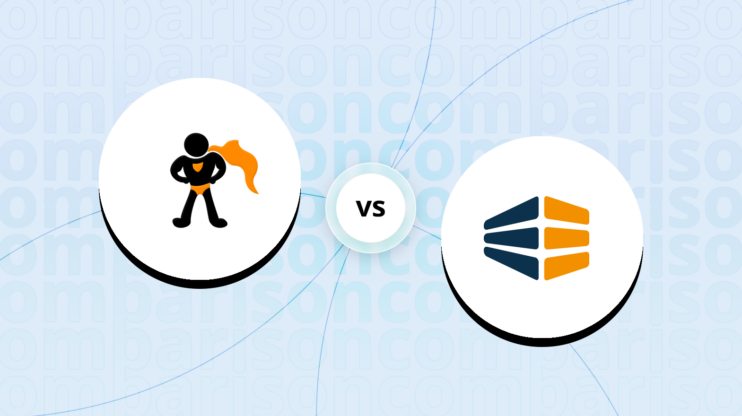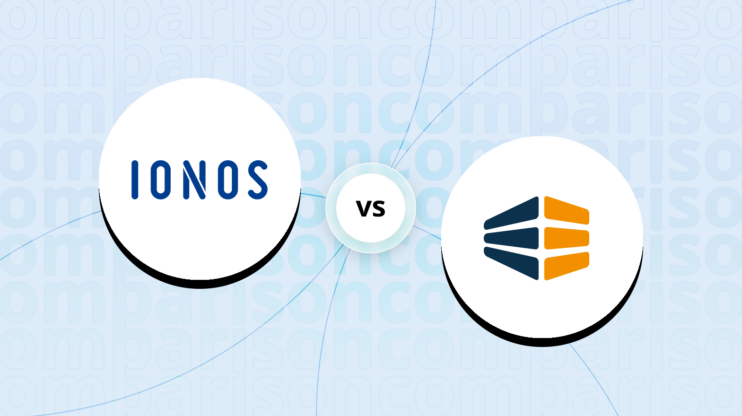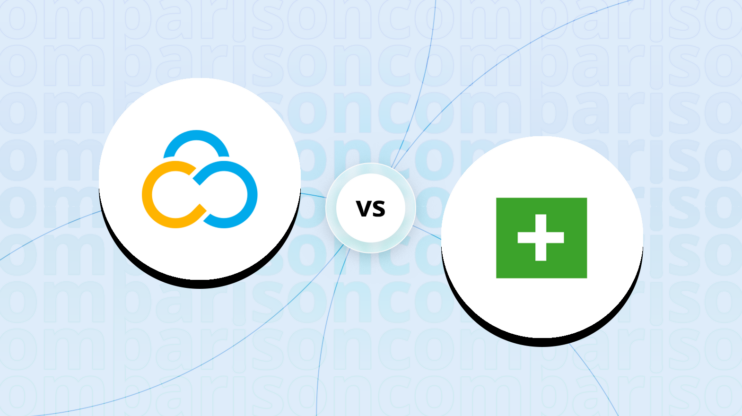Hostinger vs Siteground: Final verdict
Comparing Hostinger vs. SiteGround, both exhibit considerable strengths, each accommodating different user needs and preferences.
-
SiteGround (Overall grade: 8.8)
offers a comprehensive range of hosting types and excels in key areas, including uptime and performance. Its multiple server locations ensure minimal latency, while the 99.99% uptime over extensive periods underscores its reliability. SiteGround shines especially for agencies and high-traffic websites with features like staging, advanced security measures, and custom WAF. Customer support is another highlight, with 24/7 availability across various channels, and the convenience of phone support. The platform is suited for those who prioritize support, security, and performance, although it comes at relatively higher renewal costs.
Hostinger (Overall grade: 8.7)
distinguishes itself with competitive pricing and a user-friendly approach, making it ideal for beginners and budget-conscious users. It offers a variety of plans, including VPS hosting, that cater to different needs, with outstanding performance facilitated by LiteSpeed servers, NVMe storage, and free CDN. Hostinger’s enhanced security features and global data centers ensure consistent and reliable service. Highlights include free website migration, a drag-and-drop builder, and multilingual 24/7 live chat support. While it lacks phone support and some premium security features present in SiteGround, Hostinger remains a solid choice for those seeking affordable, high-speed hosting with extensive features.
 Overall grade:8.7 |
 Overall grade:8.8 |
|
|---|---|---|
| Uptime and Availability | 9.2 | 9.4 |
| Hosting Performance | 9.0 | 8.8 |
| Hosting Security | 8.4 | 8.6 |
| Price | 8.8 | 8.4 |
| Hosting Features | 8.3 | 8.5 |
| Ease Of Setup | 9.0 | 8.9 |
| User Management | 8.2 | 8.4 |
| Customer Support | 8.3 | 9.2 |
| User feedback | 4.4/5 | 4.3/5 |
Hosting types offered
Both platforms provide a variety of hosting types, each designed to meet the different needs of users.
 |
 |
|
|---|---|---|
| Shared hosting | ||
| Cloud hosting | ||
| WordPress hosting | ||
| Ecommerce hosting | ||
| VPS hosting | ||
| Dedicated hosting |
Although both offer a variety of hosting plans tailored to different needs, in certain cases, one platform may prove to be more suitable.
Detailed comparison
Uptime and availability
Evaluates the average uptime statistics, uptime guarantee and overall availability of the hosting
provider
Score Components:
- Uptime percentage (30%): evaluates the uptime statistics in given period of time
- Uptime guarantee (20%): Assesses if the platform offers an uptime guarantee and
whether the actual uptime matches the promised guarantee. - General performance (25%): Evaluates how fast is the average response time and overall
it’s stability. - Responsiveness (10%): Adaptability to different devices and screen sizes.
- Availability (25%): Reflects the total downtime and number of outages.
 9.2
9.2
 9.4
9.4
🏆 Winner
SiteGround: SiteGround continuously delivers exceptional uptime and rapid response times, setting a high standard in web hosting.
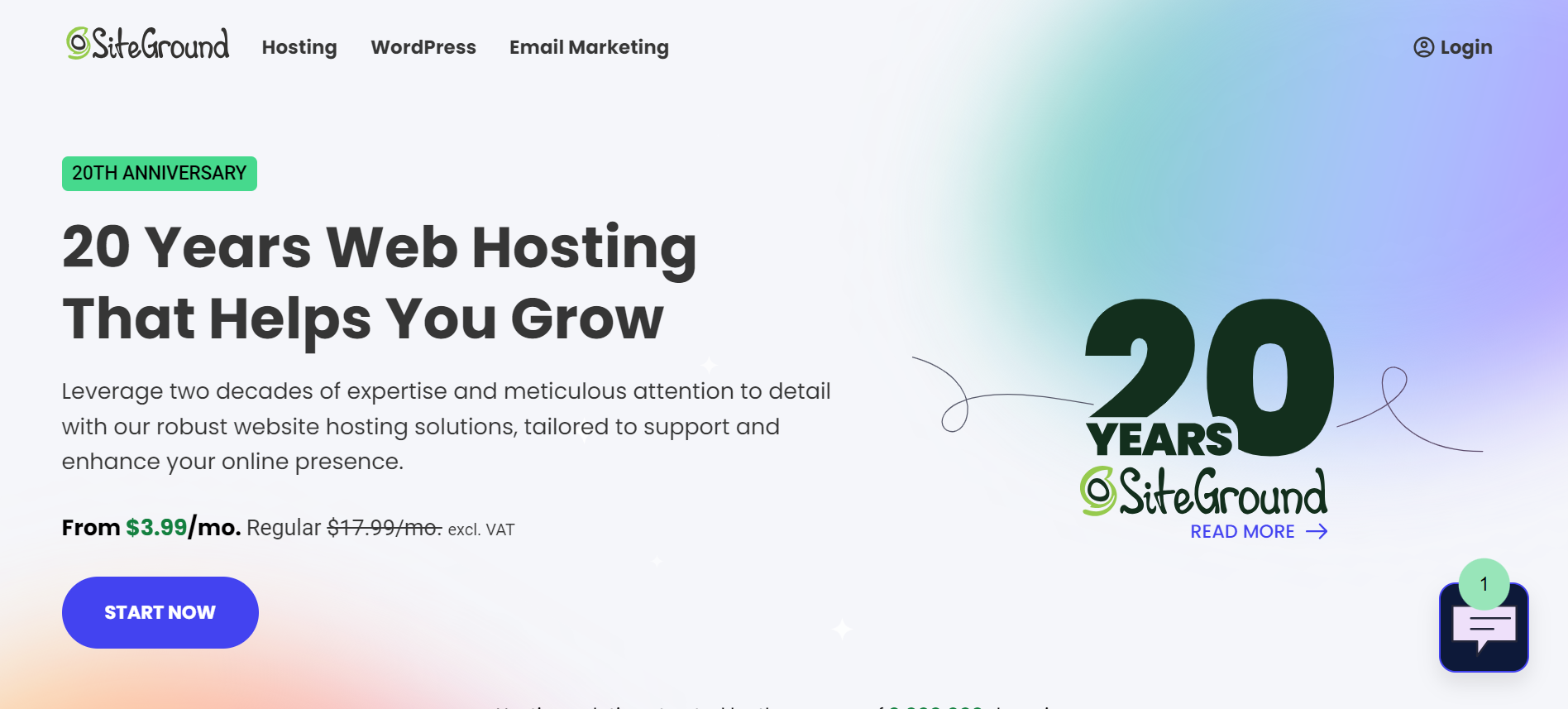
Hostinger guarantees 99.9% uptime with an impressive actual average of 99.97% over the last six months. Hostinger’s performance is validated by an impeccable 100% uptime record over a 10-week test period. The data centers’ global locations contribute to minimizing latency, while features such as enhanced DDoS protection and daily backups further enhance availability.

SiteGround also guarantees 99.9% uptime but demonstrates a slightly higher actual average of 99.99% with minimal downtime reported over almost two months. Their performance includes the fastest response time averaging 0.207 seconds in recent tests. With available server locations in several key regions and scalable support through live chat and phone, SiteGround proves to be a reliable option for hosting needs.
Which one has better hosting performance?
Score Components:
- Hosting speed (30%): This includes SSD quality, Load times, PageSpeed score ranges,
additional information on website speed, built-in plugins for performance enhancement, available caching
methods, and CPU/RAM options - CDN (20%): Considers whether CDN is available or not, whether it’s free or paid, and
the quality of the CDN service - Available data centers (30%): Evaluates the number of data centers and their locations
globally. - Scalibility (20%): Looks at whether elastic scaling is available, the process required
to scale (manual upgrade vs. automatic scaling), the presence of dedicated servers, and the costs
associated with scaling.
 9.0
9.0
 8.8
8.8
🏆 Winner
Hostinger: providing high-speed hosting with great controls.
Both Hostinger and SiteGround offer fast hosting, but Hostinger stands out with its high-speed CPUs, NVMe storage, and LiteSpeed web servers. Hostinger also utilizes object caching and a CDN for improved performance. SiteGround, while leveraging premium Google Cloud infrastructure and SSD storage for speed, includes smart caching and a dedicated CDN for enhanced delivery. Hostinger has various global data centers, whereas SiteGround relies on Google’s global reach.
Website speed
Hostinger’s 4X more speed guarantee, LiteSpeed servers, and LSCWP cache plugin provide faster load times, decreasing response time significantly. Hostinger’s object cache reduces response time by up to 3x, ensuring quick website performance. SiteGround’s PHP and MySQL custom implementations improve time to first byte and page load times by 30%. While both hosts offer advanced caching, Hostinger’s more extensive speed enhancements give it a slight edge in this area.
Scalability
Hostinger offers multiple cloud hosting plans starting at $9.99/month, with dedicated resources like RAM and CPU cores. You have to manually upgrade to higher plans for more resources, but there’s no mention of dedicated servers. SiteGround’s cloud plans start at $100.00/month and include elastic scaling, automatically adjusting resources based on demands. It is unclear whether either host includes dedicated servers. Hostinger offers a more straightforward scaling approach with its various plans.
Which one has better security features?
and regulatory requirements
Score Components:
- Technical security measures (40%): This includes encryption, firewalls, DDoS
protection, secure configurations, server monitoring, access control and availability of security addons
(e.g Sitelock security). - Operational security measures (30%): Encompasses data privacy, backups and data
redundancy. - Compliance and certifications (20%): Adherence to legal and regulatory requirements
(e.g., GDPR, HIPAA) and possession of certifications (e.g., ISO 27001, SOC 2). - Business and reliability (10%): Factors in the provider’s reputation, uptime
guarantees, and customer support.
 8.4
8.4
 8.6
8.6
🏆 Winner
SiteGround: SiteGround offers robust security features backed by innovative solutions like AI anti-bot systems and custom WAF rules.
Both Hostinger and SiteGround have notable differences in their approaches to technical and operational
security, as well as in their compliance with regulations.
Technical security measures:
Hostinger and SiteGround both provide extensive technical security measures. Hostinger features 24/7 server monitoring, firewall protection, advanced security modules, and enhanced DDoS protection. SiteGround also offers 24/7 system administration and a smart web application firewall. While both providers offer free SSL certificates, SiteGround’s AI anti-bot system stands out for effectively blocking millions of security threats daily. Hostinger’s additional security layers, such as Cloudflare-protected nameservers and comprehensive malware scanning, compare well against SiteGround’s multi-layered security managed by Google Cloud.
Operational security measures:
Both providers emphasize operational security through dedicated teams and policies. Hostinger has a dedicated internal security team and focuses on regular vulnerability scans and penetration tests. SiteGround offers automatic WordPress and WooCommerce updates, distributed backups, and daily backups with up to 30 copies. Hostinger employs a responsible disclosure policy and bug reward program to encourage vulnerability reporting. SiteGround’s custom security solutions manage overall application security, while Hostinger supports secure access through two-factor authentication and access manager features.
Compliance and certifications:
Hostinger complies with GDPR but does not offer PCI or HIPAA compliant environments. It lacks ISO 27001 and SOC certifications but maintains extensive security practices. SiteGround also complies with GDPR regulations but does not provide PCI compliant servers. Both providers ensure that their security measures meet basic regulatory requirements, focusing on data protection and user privacy.
 |
 |
|
|---|---|---|
SSL certificate |
Free |
Free |
Additional security features |
Extensive |
AI anti-bot, Custom WAF |
PHP versions |
Customizable |
Not specified |
GDPR compliance |
Yes |
Yes |
HIPAA compliance |
No |
Not specified |
PCI compliance |
No |
No |
Hosting features
Score Components:
- Domains (20%): Assesses the availability of a free domain, domain purchase options, and
pricing - Email (15%): Considers if the provider offers full email hosting, or is reselling
third-party service, and if the email is only transactional or not - Website builder (15%): Checks if website builder is available, and it’s user
friendliness and overall the level of customization allowed. - Staging environment (20%): Determines if a staging environment is available, allowing
for testing changes before going live. - FTP & SFTP accounts (10%): Evaluates if and how easily users can access FTP and
SFTP accounts - Git and SSH access (20%): Assess whether Git is integrated into the hosting service and
if SSH access is provided
 8.3
8.3
 8.5
8.5
🏆 Winner SiteGround: SiteGround offers a rich blend of hosting features and unmatched support for WordPress websites.
Hostinger and SiteGround both offer robust hosting solutions, yet cater to different user needs. Hostinger’s custom-built hPanel control panel and intuitive drag-and-drop website builder equipped with AI features make it a great choice for beginners who value simplicity. The inclusion of a free domain and SSL with most plans further enhances its appeal. On the other hand, SiteGround provides a free site builder and more extensive managed WordPress services, including a WordPress migrator plugin and a starter plugin which facilitate easy website setup and customization. Both options ensure a user-friendly experience, but SiteGround’s staging environments and advanced priority support give it an edge for developers who require more control and detailed functionalities.
Regarding key features like domain registration policies and additional fees, Hostinger offers a free domain for the first year, which is a significant bonus for newcomers looking to minimize initial costs. SiteGround’s special prices on the first invoice are attractive, though regular prices apply for renewals, which may affect long-term budgeting. Hostinger’s daily on-demand backups and free automatic website migration provide added layers of convenience and security. SiteGround, however, boasts a custom WAF and AI anti-bot system, enhancing site protection. While both offer 24/7 support, SiteGround’s priority support and higher customer satisfaction rate suggest quicker and more effective assistance.
 |
 |
|
|---|---|---|
Free domain |
Yes, for the first year |
Yes, for the first year |
Free SSL |
Yes |
Yes |
Email hosting |
Yes |
Yes |
Website builder |
Yes |
Yes |
Staging environment |
Yes |
Yes |
FTP & SFTP accounts |
Yes |
Yes |
Git and SSH access |
Yes |
Yes |
Free backup |
Yes |
Yes |
Money back guarantee |
Yes, 30 days |
Yes, 30 days |
a location.
As a result in rare cases the features mentioned here can differ from the ones you see on their websites.
Both providers support a range of users from beginners to experts with user-friendly website builders and WordPress staging areas. However, in terms of developer tools, both Hostinger and SiteGround offer robust options including SSH access, support for multiple programming languages, and Git for version control, thus appealing to developers looking for advanced capabilities.
Email services:
Hostinger and SiteGround both support email hosting services, allowing users to set up their own email campaigns and manage business communications. SiteGround includes a free email migrator and ensures email hosting with enhanced security measures, appealing to users who need robust email management solutions. Hostinger provides reliable email hosting as well, making it easy for businesses to maintain professional email communications. While both options are solid, SiteGround’s emphasis on unlimited databases and priority support could be more attractive to users with higher email handling needs.
Price
Score Components:
- Plan value (40%): What each pricing tier offers.
- Transparency and clarity (30%): Clearness of pricing structures.
- Flexibility of plans (20%): Range of options to suit different budgets.
- Hidden costs (10%): Additional expenses not included in the plan.
 8.8
8.8
 8.4
8.4
🏆 Winner Hostinger: Offering competitive prices and extensive features, Hostinger takes the lead with higher customer satisfaction.
Evaluating the pricing of plans among various hosting providers can be complex due to their differing pricing and renewal strategies. Additionally, certain plans require annual commitments, which adds to the difficulty of making comparisons. The prices listed are based on monthly commitments; plans requiring annual commitments are indicated. Additionally, although some providers offer identical plans for WordPress and shared hosting, we have created separate tables for each to enhance clarity.
Hostinger and SiteGround both offer a variety of hosting plans, but Hostinger generally provides more value at a lower cost. Hostinger’s shared hosting starts at $2.99/month for 100 websites and includes features like unlimited bandwidth, a free domain, and SSL certificates. SiteGround, on the other hand, starts at $3.99/month for just one website with higher renewal costs. For cloud hosting, Hostinger’s entry price is $9.99/month with robust features, whereas SiteGround’s basic plan is significantly more expensive at $100/month. Across both companies, WordPress hosting plans are similarly structured to their shared hosting plans, but Hostinger tends to provide more storage and a free domain at a lower price.
 |
 |
|---|---|
|
Premium $7.99
Custom domain, WordPress multisite, 100 domain-based email addresses, WordPress themes, Value for price:9.0
|
StartUp Plan $17.99 (excl. VAT)
1 website, 10 GB web space, ~10,000 visits monthly, unmetered traffic, free WP installation, Value for price:8.0
|
|
Business $8.99
Custom domain, WordPress multisite, 100 domain-based email addresses, WordPress themes, Value for price:9.0
|
GrowBig Plan $29.99 (excl. VAT)
Unlimited websites, 20 GB web space, ~100,000 visits monthly, unmetered traffic, free WP installation, Value for price:8.5
|
|
Cloud Startup $19.99
Custom domain, WordPress multisite, 100 domain-based email addresses, WordPress themes, Value for price:9.0
|
GoGeek Plan $44.99 (excl. VAT)
Unlimited websites, 40 GB web space, ~400,000 visits monthly, unmetered traffic, free WP installation, Value for price:8.5
|
 |
 |
|---|---|
|
Premium $7.99
100 websites, ~25,000 visits monthly, 100 GB SSD storage, unlimited bandwidth, free domain, Value for price:8.8
|
StartUp Plan $17.99 (excl. VAT)
1 website, 10 GB web space, ~10,000 visits monthly, unmetered traffic, free SSL, daily backup, Value for price:8.4
|
|
Business $8.99
100 websites, ~100,000 visits monthly, 200 GB NVMe storage, unlimited bandwidth, free domain, Value for price:8.9
|
GrowBig Plan $29.99 (excl. VAT)
Unlimited websites, 20 GB web space, ~100,000 visits monthly, unmetered traffic, free SSL, daily backup, Value for price:8.5
|
|
Single Hosting $3.99
1 website, 50 GB SSD storage, 100 GB bandwidth, free domain, unlimited free SSL, weekly backups, Value for price:8.7
|
GoGeek Plan $44.99 (excl. VAT)
Unlimited websites, 40 GB web space, ~400,000 visits monthly, unmetered traffic, free SSL, Value for price:8.5
|
 |
 |
|---|---|
|
Cloud Startup $19.99
300 websites, ~200,000 visits monthly, 200 GB NVMe storage, 2,000,000 files and directories, Value for price:8.9
|
Jump Start Plan $100.00 (excl. VAT)
4 CPU cores, 8GB memory, 40GB SSD space, 5TB data transfer. Value for price:7.5
|
|
Cloud Professional $32.99
300 websites, 250 GB NVMe storage, 6 GB RAM, 4 CPU cores, unlimited bandwidth, free domain, Value for price:9.0
|
Business Plan $200.00 (excl. VAT)
8 CPU cores, 12GB memory, 80GB SSD space, 5TB data transfer. Value for price:7.8
|
|
Cloud Enterprise $54.99
300 websites, 300 GB NVMe storage, 12 GB RAM, 6 CPU cores, unlimited bandwidth, free domain, Value for price:9.0
|
Business Plus Plan $300.00 (excl. VAT)
12 CPU cores, 16GB memory, 120GB SSD space, 5TB data transfer. Value for price:7.9
|
|
N/A
Value for price:N/A
|
Super Power Plan $400.00 (excl. VAT)
16 CPU cores, 20GB memory, 160GB SSD space, 5TB data transfer. Value for price:8.0
|
As a result in rare cases the prices displayed here can differ from the ones you see on their websites.
Enterprise plans
Hostinger offers an affordable Cloud Enterprise plan starting at $54.99 per month with 12 GB RAM, 6 CPU cores, and 300 GB NVMe storage. SiteGround’s closest counterpart, the Super Power Plan, is priced at $400.00 per month, offering 16 CPU cores and 20GB of memory. The disparity in price makes Hostinger a more budget-friendly option for enterprises.
Hostinger vs Siteground: Ease of setup
platform.
Score Components:
- Site migration (25%): Assesses whether the provider offers tools for site migration,
either automated or manual, and whether these services are free or require a fee. - Admin panel usability (35%): Evaluates the type of admin panel provided, such as the
standard cPanel or a custom solution, focusing on its accessibility and user-friendliness for both
technical and non-technical users. - Setup features (20%): Examines the availability and ease of use of various setup
features, including FTP accounts, file managers, email account setup, PHPMyAdmin, and easy CDN
configuration. - Help center quality (20%): Measures the quality and accessibility of the provider’s
help center resources, including articles and tutorials.
 9.0
9.0
 8.9
8.9
🏆 Winner Hostinger: Offers user-friendly setup and comprehensive support resources.
Hostinger provides a custom-built control panel called hPanel, which is designed for accessibility and ease of use. Beginners and experienced users alike can benefit from its intuitive interface, enabling them to perform multiple tasks such as setting up a professional email address, installing content management systems, and using the website builder without needing prior technical knowledge. The inclusion of AI tools further enhances the user experience by simplifying content creation and other tasks.
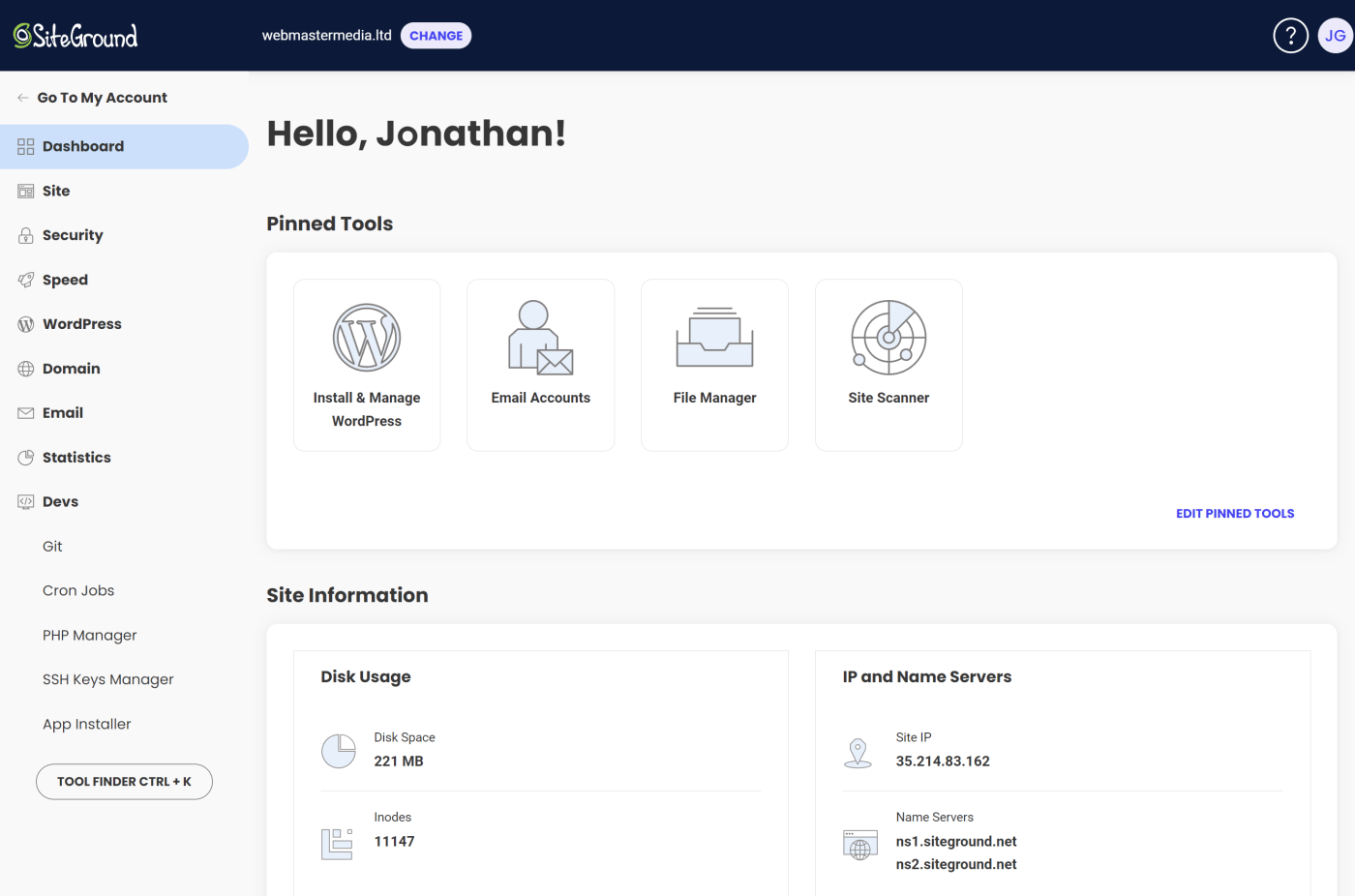
SiteGround, on the other hand, offers a standard but streamlined admin experience through its Automated Site Setup Wizard and WordPress Starter Plugin. These tools facilitate quick site launches and ease the process of adding themes and plugins. While both hostings offer admin panels that cater to non-technical users, Hostinger’s hPanel provides a more polished experience with additional AI integration, making it notably more user-friendly for beginners.
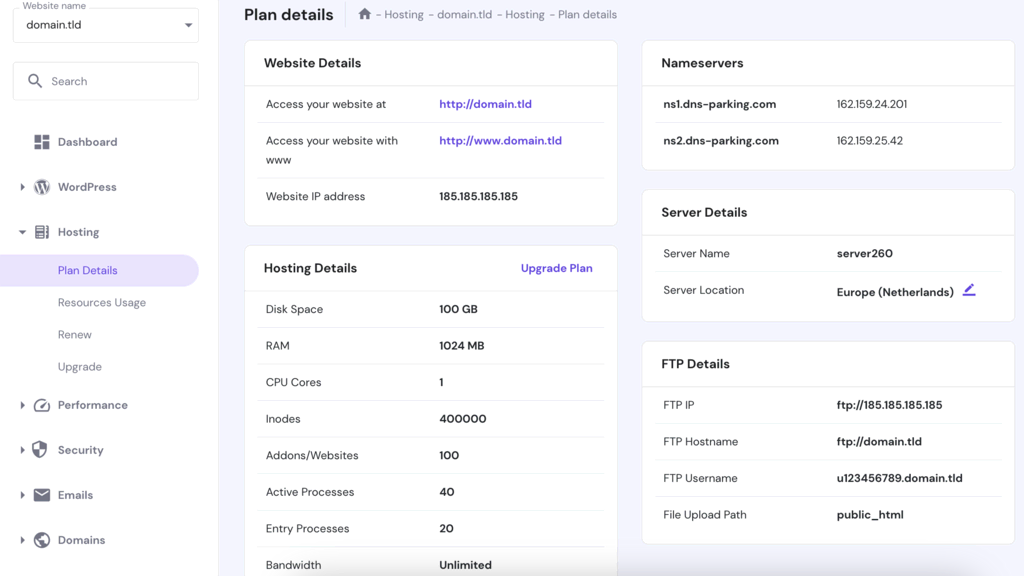
Hostinger stands out with its free automatic website migration service, which ensures no downtime. This feature is particularly appealing for users looking to move their sites without complications. SiteGround does provide a Free WordPress Migrator Plugin and offers professional expert migrations, but these services come at a cost of around $30.00 per site. The costs associated with SiteGround’s professional migration services might deter some users, making Hostinger’s free migration a clear advantage.
Both providers excel in offering comprehensive help center resources. Hostinger provides a rich selection of tutorials and guides, supported by a strong 24/7 multilingual support team. Users can access information on a variety of essential topics through Hostinger’s Help Center and Hostinger Academy. Similarly, SiteGround also offers extensive resources, including an extensive knowledge base, pinned help articles on every page, and quick support through live chat, phone, and helpdesk tickets. The quality and availability of support ensure that users can resolve their issues efficiently.
User management
accessibility.
Score Components:
- Role customization (40%): Flexibility in creating and defining user roles and
permissions. - Ease of management (30%): User interface and tools for managing users.
- Access control (20%): Effectiveness of access control measures for different user
levels. - Scalability (10%): Ability to manage a growing number of users efficiently.
 8.2
8.2
 8.4
8.4
🏆 Winner: SiteGround: Offering versatile user management features with seamless accessibility and extensive client customization options.
In comparing Hostinger and SiteGround for user roles, permissions, and accessibility, both platforms display proficient capabilities. Hostinger provides a streamlined process for client onboarding and two levels of access, focusing on centralized service management and maintaining robust restrictions to secure accounts. SiteGround, on the other hand, extends more flexibility in defining roles, adding team members and white-label clients, especially valuable for GoGeek and Cloud plan users. Users can create custom roles, assign permissions, and grant white-label access, adding a layer of personalization that caters to diverse client needs.
Hostinger’s user interface, accessible via hPanel, centralizes functionalities and ensures ease of navigation when managing users. Adding new clients is straightforward with clear steps and quick access to the relevant sections. SiteGround’s user management is handled through the Client Area, where users can manage collaboration and client roles. The added feature of white-label access and providing individual logins for collaborators contributes to an intuitive and well-structured user experience.
Evaluating the effectiveness of access control measures, Hostinger provides a straightforward and restrictive approach, ensuring that users with granted access have limited capabilities, thereby preserving account security. SiteGround offers a versatile setup, allowing not only for user and role creation but also enabling clients to have their accounts, build, maintain sites, and contact support. This flexibility makes SiteGround adept at managing a growing number of users efficiently, catering to varied user management needs more comprehensively.
Hostinger user roles table:
| Role | Description | Access highlights |
|---|---|---|
| Manage services | Modify files and websites, manage VPS, change hosting-related settings | Can manage websites, modify files, and handle VPS configurations but cannot make purchases or manage payment methods. |
| Manage services and make purchases | Comprehensive management including buying new hosting plans or domains | Can manage all aspects of websites and services, and make purchases using the existing payment methods but cannot manage payment methods or profile. |
SiteGround user roles table:
| Role | Description | Access highlights |
|---|---|---|
| Collaborator | Team members assisting with the website’s creation and maintenance | Can access individual Site Tools, build and maintain sites, and contact support from their account. |
| White-label Client | Clients registered under GoGeek and Cloud plans with branded access | Access Site Tools without SiteGround branding, personalized login details, and ability to manage their own section of services without brand exposure. |
Customer support
hosting provider.
Score Components:
- Support communication channels (30%): Measures the variety of customer support types
provided (live chat, chatbot, email, phone, etc.) - Availability (20%): Assesses the availability hours for each channel, including 24/7
support options. - Technical support quality (30%): Assesses whether the provider offers comprehensive
technical support, including hardware upgrades (e.g., HDD to SSD), software installations, and web
server configuration changes. - Enterprise support (20%): Checks if there are dedicated or priority support services
for enterprise-level customers.
 8.3
8.3
 9.2
9.2
🏆 Winner SiteGround: Offers multiple support channels with a strong focus on customer satisfaction and empowerment.
 |
 |
|
|---|---|---|
Phone support |
||
Live chat support |
||
Chatbot |
||
Email/ticket support |
||
Enterprise support (dedicated agent, priority support) |

Hostinger provides a range of customer support options, including 24/7 live chat, email, and a comprehensive knowledge base. Their multilingual support team and fast response time are notable strengths. Clients can also access priority support with certain plans for faster resolution of issues.
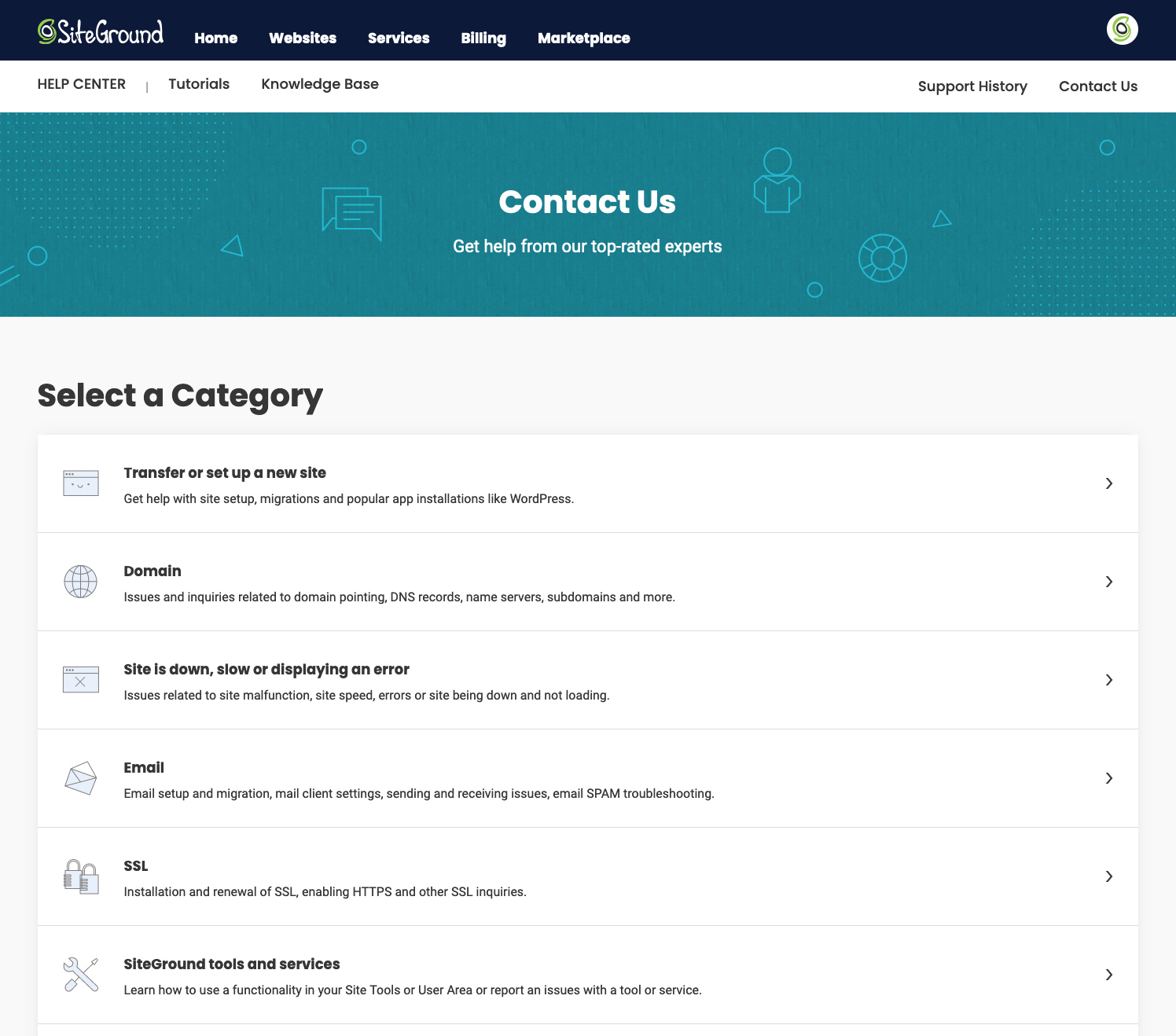
SiteGround, on the other hand, offers a broader array of customer support channels including phone support, live chat, and helpdesk tickets. Their highly trained and friendly staff are available 24/7 and are known for quick resolutions. The inclusion of an AI assistant and multiple feedback channels further enhances their customer support experience. The focus on customer empowerment and satisfaction makes SiteGround a strong option for hosting services.
Hostinger vs Siteground: User feedback
Hostinger receives high praise for its user-friendly interface, competitive pricing, and robust performance. Customers appreciate the wide range of features, including seamless website migration, the intuitive hPanel, and excellent uptime. The standout feature, consistently mentioned across reviews, is the exceptional and responsive customer support available 24/7 via live chat, although some users express a desire for phone support. On the downside, a few customers report issues with renewal pricing, occasional slow support response times, and the limitations of the lower-tier plans.
SiteGround garners consistently high praise for its exceptional customer support and user-friendly tools, frequently being described as reliable and straightforward to use. Users commend the fast and knowledgeable technical assistance, which is available through various channels like chat and phone, often highlighting the effectiveness and patience of support representatives. Despite these positive aspects, some users find renewal pricing relatively expensive and note that navigating to the support section can be cumbersome. Issues with specific features, such as webmail interface and certain plugins, are also mentioned, but overall, SiteGround is recommended for its strong support and ease of use, especially for beginners and small businesses.
Hostinger vs Siteground: FAQ
Which platform is better suited for hosting WordPress websites?
Both Hostinger and SiteGround are excellent for WordPress hosting, offering managed services with features like WP-CLI, security tools, and performance enhancements. SiteGround provides staging environments and advanced support, making it ideal for developers, while Hostinger’s affordability and simplicity cater well to beginners. Ultimately, both platforms are tied for hosting WordPress websites effectively.
Are both platforms suitable for beginners?
Yes, both Hostinger and SiteGround are suitable for beginners. Hostinger offers a user-friendly hPanel, AI-enhanced website builder, and free automatic migrations, making it very approachable. SiteGround also provides streamlined setup tools and comprehensive support resources, though it is slightly more technical compared to Hostinger.
Which hosting service offers better security features?
SiteGround offers superior security features with measures such as custom WAF rules, AI anti-bot systems, and Google Cloud’s multi-layered security. Hostinger also provides strong security with DDoS protection, enhanced firewall modules, and Cloudflare-protected nameservers. While both are robust, SiteGround’s advanced and innovative security solutions give it the edge.
What are the major differences in pricing and value between Hostinger and SiteGround?
Hostinger offers more competitively priced plans with numerous features like free domains and SSL certificates at lower initial costs, making it appealing for budget-conscious users. SiteGround has higher initial costs but includes premium features like daily backups and faster PHP speeds. Hostinger offers more cost-effective cloud and VPS options, while SiteGround’s offerings are more enterprise-focused with higher pricing.
Which hosting service offers more scalability options for growing websites?
Hostinger and SiteGround both provide scalable hosting solutions with clear upgrade paths. Hostinger offers flexible cloud hosting plans from Startup to Enterprise with dedicated IPs. SiteGround offers elastic scaling through its cloud hosting, though it lacks automatic scaling for lower plans. Both services are capable, but Hostinger provides more accessible and affordable options for growing websites.
Which platform offers better customer support?
SiteGround offers superior customer support with multiple channels including phone support, live chat, helpdesk tickets, and an AI assistant, all available 24/7. Hostinger provides excellent support through live chat and email, with a fast response time and multilingual team but lacks phone support. SiteGround’s comprehensive support options and quicker resolutions make it the better choice for customer support.
The making of this blog
We followed a clear, step-by-step process to write and research this article.









